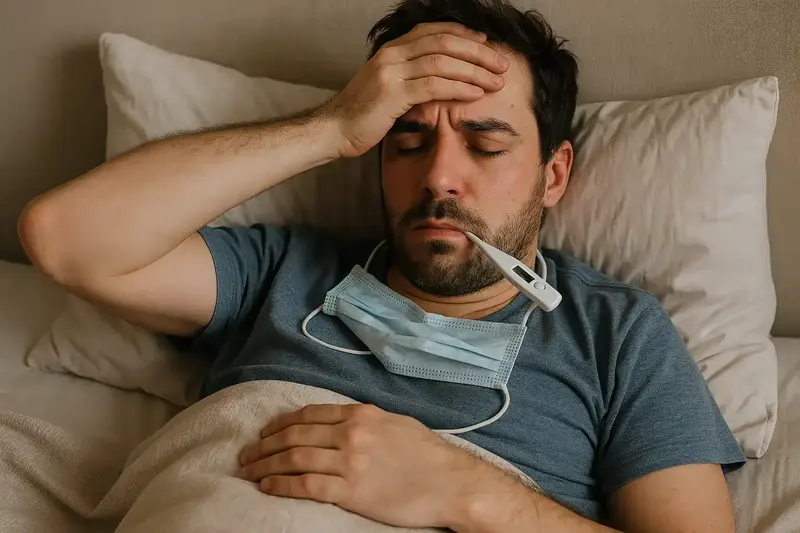- Published on: Feb 11, 2022
- 3 minute read
- By: Second Medic Expert
How To Lower Blood Pressure Safely
How to Lower Blood Pressure Safely
There are many ways to lower blood pressure safely. Some people may need to take medication to lower their blood pressure, but there are many other things you can do to help lower your blood pressure as well.
Some simple steps you can take to lower your blood pressure include eating a healthy diet, exercising regularly, and avoiding cigarettes and alcohol. You should also try to keep your stress levels under control. If you can't seem to lower your blood pressure on your own, talk to your doctor about medications that may help.
There are many ways to lower blood pressure safely. Some people may need to reduce their sodium intake, increase physical activity, and lose weight. Others may need medication to control their blood pressure. The key is to work with a health care provider to find the best way for you to lower your blood pressure. He or she can help you create a plan that fits your lifestyle and medical needs. There are many ways to lower blood pressure safely. Some people may need medication to get their blood pressure under control, but there are also many ways to lower blood pressure without medication.
One way to lower blood pressure is by eating a healthy diet. Eating plenty of fruits and vegetables can help keep your blood pressure low. You should also limit your intake of salt, sugar, and saturated fat. Exercise can also help to lower your blood pressure. Taking a brisk walk for 30 minutes every day can make a big difference.
Another way to lower blood pressure is by managing your stress levels. Stress can cause your blood pressure to rise, so it's important to find ways to relax and de-stress daily. One way to lower blood pressure safely is by reducing your intake of salt.Try to cut back on processed foods, which are high in salt, and season your food with herbs and spices instead
Another way to lower blood pressure is by exercising regularly. Exercise helps the body regulate blood pressure and improves overall cardiovascular health. Aim to get at least 30 minutes of exercise most days of the week
Reducing stress is also important for keeping blood pressure in check. Stress can cause a temporary rise in blood pressure, so try to find ways to relax and de-stress throughout the day
There are several safe and natural ways to lower blood pressure. Some include:
-Eating a healthy diet that is low in salt and processed foods and high in fruits, vegetables, and whole grains
-Exercising regularly
-Losing weight if you are overweight or obese
-Limiting your intake of alcohol
-Quitting smoking
Lowering blood pressure is a process that usually takes time.
There are many ways to lower blood pressure, but not all of them are safe for everyone. Some people may need to see a doctor before starting any new treatments.
Lifestyle changes such as losing weight, eating healthy foods, and getting regular exercise can help lower blood pressure for most people. Quitting smoking and cutting back on alcohol can also help.
Some people may need to take medication to lower their blood pressure. The type of medication will depend on the person's individual health condition.
While lowering blood pressure generally requires medication, there are some things you can do to help lower it safely. Some lifestyle changes that may help include quitting smoking, eating a healthy diet, getting regular exercise, and maintaining a healthy weight.
In addition, certain herbs and supplements have been shown to help lower blood pressure naturally. These include omega-3 fatty acids, magnesium, hibiscus tea, coenzyme Q10, and garlic. Talk with your doctor before beginning any herbal or supplement regimen to make sure they are safe for you and will not interact with any medications you are taking.
There are many ways to lower blood pressure safely. Some methods are more effective than others, but they all have one thing in common: they work best when combined with a healthy diet and lifestyle. Here are some of the most effective ways to lower blood pressure
- Eat a healthy diet that is low in sodium and high in potassium.
- Exercise regularly.
- Reduce stress levels.
- Quit smoking.
- Limit alcohol consumption.
It is possible to lower blood pressure safely by following a healthy diet, getting regular exercise, and reducing stress. The Dietary Approaches to Stop Hypertension (DASH) diet is recommended to help lower blood pressure. The DASH diet is rich in fruits, vegetables, whole grains, and low-fat dairy products, and is low in saturated fat and cholesterol
Regular exercise can help you lose weight and improve your overall health. Aerobic exercise such as walking, running, biking, or swimming for 30 minutes most days of the week can help to lower blood pressure. Yoga or relaxation techniques may also help reduce stress levels and lower blood pressure.
There is no one-size-fits-all answer to this question, as the best way to lower blood pressure may vary from person to person. However, some of the most effective ways to lower blood pressure include eating a healthy diet, getting regular exercise, and avoiding tobacco products.
Additionally, if you are taking medication to treat high blood pressure, it is important to follow your doctor's instructions carefully and to take your medication as prescribed. If you have any questions or concerns about your medication, be sure to talk with your doctor.









